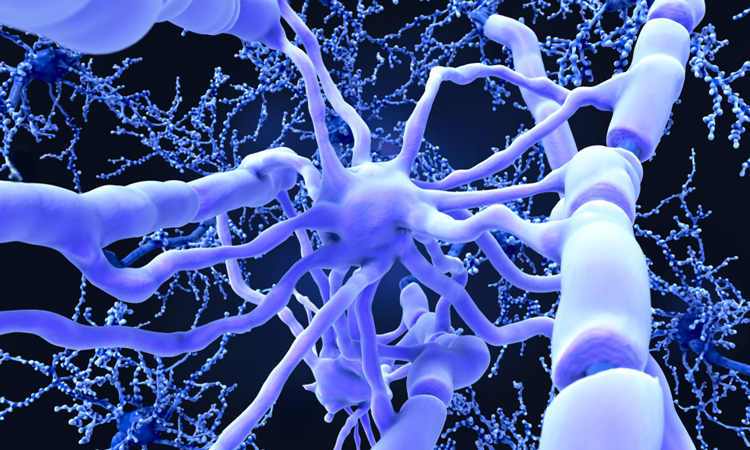Potential small molecule drug could treat multiple sclerosis
Posted: 12 December 2023 | Drug Target Review | No comments yet
The new small molecule targets the glutamate system, reducing MS-like symptoms and repairing damaged myelin in two different animal models.


Preclinical studies conducted by the Centre for Addiction and Mental Health (CAMH) using a small molecule drug have shown promise as a potential novel treatment for multiple sclerosis (MS).
Previous work by Dr Fang Liu found a new drug target for the treatment of MS, and now she and her team have made a small molecule compound that is effective in two different animal models of MS. This is a crucial advancement in bringing MS research closer to the clinic.
MS, a progressive neurological disease that currently has no cure, is associated with various debilitating symptoms, including problems with cognition and coordination, depression, and muscle weakness. MS damages myelin, a protective sheath that forms around nerves in the brain and spinal cord. Myelin damage is triggered by inflammation in the immune system, so all current drug treatments for MS target the immune system.
However, in this study, CAMH Senior Scientist Dr Liu and her team targeted the glutamate system instead. The results demonstrated that the newly synthesised lead compound reduced MS-like symptoms and may repair the damaged myelin in two different pre-clinical models of MS.
Dr Lui explained: “Our compound had a stunning effect on rescuing myelin and motor function in the lab models, and I hope these effects will translate to the clinic to add to current treatments and bring new hope to patients with MS…As with cancer chemotherapy drug cocktails, simultaneous targeting of the MS disease pathway at multiple points can have synergistic effects and result in better outcomes.”
Dr Iain Greig, Reader in Medicinal Chemistry at the University of Aberdeen, and his team, are working to turn the molecules found by Dr Liu into advanced ’drug-like’ molecules suitable for continued development towards clinical use in patients. He commented: “In all my years as a medicinal chemist, I have never seen a more promising starting point for a drug development project.”
Dr Liu thinks that the evidence of efficacy and tolerability generated in this study for the small molecule drug makes it a good candidate to be developed for human trials. Further pre-clinical research will be required, including investigating safety and stability of the compound.
The researchers at CAMH and the University of Aberdeen have filed patent applications to protect this research and are now seeking industry partners to advance this work towards clinical trials over the coming few years.
The findings were published in Science Advances.
Related topics
Drug Development, Drug Targets, Neurosciences, Small molecule
Related conditions
Multiple Sclerosis (MS)
Related organisations
Aberdeen University, Centre for Addiction and Mental Health (CAMH)
Related people
Dr Fang Liu (CAMH), Dr Iain Greig (University of Aberdeen)








